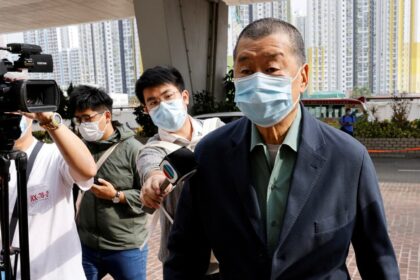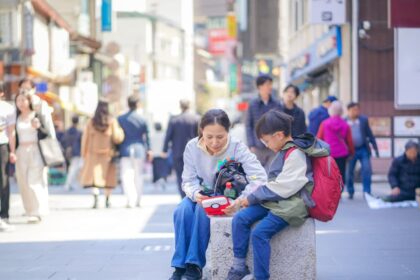Life sentence for former Bamban mayor exposes Southeast Asia scam empire
A Philippine court has sentenced former Bamban mayor Alice Guo to life in prison for human trafficking, concluding a case that laid bare a sprawling online fraud complex north of Manila. Guo, a Chinese national who presented herself as a Filipina to run for office, was convicted alongside seven others for trafficking offenses linked to a compound where hundreds of workers were forced to carry out internet scams under threat of abuse. Prosecutors said the ruling shows that authorities can dismantle networks that mix local influence with transnational crime.
- Life sentence for former Bamban mayor exposes Southeast Asia scam empire
- How a little known politician rose and fell
- Inside the Bamban compound
- What the court decided and who else was convicted
- The crackdown on Philippine online gaming operations
- A regional cyber scam industry built on trafficking
- Political and diplomatic fallout
- Investigators and a critical escape
- What happens next in the courts
- Key Points
The case turned in March 2024 when police raided an eight hectare complex in Bamban after a Vietnamese worker escaped and called for help. Inside, officers found an operation far larger than a typical gambling floor. The compound contained office buildings, dormitories and luxury villas, along with a large swimming pool. More than 700 people from the Philippines, China, Vietnam, Malaysia, Taiwan, Indonesia and Rwanda were rescued. Many told authorities they were compelled to defraud victims online or risk torture. Documents seized at the site indicated that Guo held a senior corporate role tied to the property.
Deputy State Prosecutor Olivia Torrevillas confirmed the outcomes outside the Pasig City Regional Trial Court and described the verdict as a swift result for a complex case. After introducing the decision to reporters, she emphasized that the court sentenced all eight defendants to life terms for trafficking offenses.
After over just one year, the court gave us a favourable decision. Alice Guo was convicted along with seven other co-accused. Life imprisonment.
Officials from the national anti crime commission said Guo and three others were convicted for organizing trafficking inside the compound, while four more were found guilty of acts of trafficking. Guo, 35, has denied the allegations. It was not immediately clear if she would appeal.
How a little known politician rose and fell
Guo won the 2022 mayoral race in Bamban, a town in Tarlac province about 80 kilometers north of Manila. She presented herself as a local business figure and a Filipino citizen. That narrative unraveled during a high profile Senate inquiry, when investigators disclosed that her fingerprints matched those of a Chinese national named Guo Hua Ping. Lawmakers and law enforcement officials also questioned the origin of her Philippine birth records and the gaps in her life story.
Investigators said Guo leased a roughly 20 acre property in Bamban to Zun Yuan Technology, a company that operated an online gambling site. She allegedly used her position to help the enterprise secure local permits. The site, according to police, doubled as a hub for large scale internet fraud that targeted victims abroad.
In June 2024, a Manila court ruled that Guo was a Chinese citizen and not eligible to hold public office. She was removed from her post and later cited for contempt by the Senate for refusing to attend hearings. After fleeing the country, she was arrested in Indonesia in September 2024 and extradited to the Philippines. Her Philippine passport was canceled and she remained in detention while the trafficking case moved forward.
Inside the Bamban compound
The complex sat near the municipal center and, according to police, operated under the cover of Philippine online gaming. It included 36 buildings that housed administrative offices and accommodations for workers. The site’s amenities were a stark contrast to accounts from rescued people who described confinement, threats and an atmosphere of fear.
What investigators found
Authorities discovered between 700 and 800 workers from multiple countries. Many were recruited with promises of legitimate jobs, then stripped of documents and forced to work long hours messaging targets worldwide. The operation concentrated on social media outreach, scripted texting and call center style persuasion. It fed a steady stream of money into accounts controlled by managers who moved funds through crypto wallets and bank transfers.
How pig butchering scams work
Victims of these schemes are groomed over weeks or months through messaging apps, gaming platforms or dating sites. The scammer builds trust, then steers the target into fake investment platforms or online casinos that show fabricated gains. When the victim tries to withdraw, the platform blocks access and demands fees or new deposits. By then, the money is gone. The term “pig butchering” refers to how scammers first fatten the trust of a victim, then take everything. Workers inside compounds are often coached to play multiple roles, from love interests to investment advisers, and face threats or abuse if they fail to meet quotas.
What the court decided and who else was convicted
The Pasig City Regional Trial Court found Guo guilty of qualified human trafficking, a serious offense under Philippine law that carries a life term and heavy fines. Prosecutors said seven co defendants were also convicted. According to officials, four were found guilty of organizing trafficking and four of acts of trafficking inside the Bamban site. Some names were not made public due to confidentiality rules in trafficking cases.
Each of the four main defendants received a fine of 2 million pesos, and the court ordered the Bamban compound forfeited to the government. The ruling sends a message about the criminal use of licensed gaming operations as fronts for fraud and trafficking, prosecutors said, and it demonstrates that local permits cannot shield a criminal enterprise from accountability.
In a statement, the Presidential Anti Organized Crime Commission called the verdict a milestone and said it validated a year of coordinated work by police, prosecutors and regulators. After the commission explained that hundreds of workers were rescued and many are now cooperating with authorities, it underscored the symbolic weight of the conviction.
The ruling is both a legal and moral victory, delivering justice to victims and reaffirming the government’s stance against organized crime.
Prosecutors indicated that Guo still faces separate cases, including graft and money laundering, tied to the same network. Her lawyer did not immediately respond to requests for comment.
The crackdown on Philippine online gaming operations
Online casinos, known in the Philippines as Philippine Online Gaming Operations or Pogos, expanded rapidly under a previous administration after the state regulator gained power to issue licenses nationwide. While operators advertised a regulated industry and tax revenue, police and labor advocates documented abuses ranging from unpaid wages to confinement and trafficking.
Mounting public anger over the Bamban revelations shaped policy. In 2024, President Ferdinand Marcos Jr announced a ban on offshore gambling operations and ordered foreign nationals working in the sector to leave the country. Authorities launched a wave of inspections and raids, shuttering compounds that masqueraded as legal gaming while running fraud and other crimes. The verdict against Guo gives that policy new momentum by showing that courts will back large cases that reach into local politics.
A regional cyber scam industry built on trafficking
Forced labor in cyber fraud compounds is a regional crisis. Criminal groups have trafficked thousands of people into large compounds in Cambodia, Myanmar, Laos and the Philippines, where they are forced to scam victims globally. A United Nations assessment estimated that people across the wider region lost up to 37 billion dollars to online fraud in 2023, and suggested the true figure could be higher.
Authorities in multiple countries, including the Philippines, China and the United States, have stepped up arrests and asset seizures linked to these operations. Criminal organizations adapt quickly, moving staff across borders when pressure builds. They lean on local partners to secure real estate, set up shell companies and obtain permits. The Bamban case fits that pattern, with prosecutors showing how a supposedly lawful gaming operation concealed an extensive fraud and trafficking machine.
Political and diplomatic fallout
The case reached court as Manila’s ties with Beijing remained strained over maritime disputes in the South China Sea. Some Philippine lawmakers publicly questioned whether Guo had ties to Chinese state interests, an allegation she denied. The Chinese embassy did not comment on the trafficking verdict. The controversy fueled debate over how candidates are vetted, how civil registry documents are verified and how local officials interact with foreign owned firms.
Senator Risa Hontiveros, who led Senate hearings on trafficking and cyber fraud, welcomed the conviction and framed it as a test of political will. After describing how the committee documented abuses inside gaming compounds and pressed agencies to tighten oversight, she said the case must not be the last word.
This is a victory against corruption, human trafficking, cybercrime, and other transnational crimes.
Hontiveros said accountability would be demanded from agencies that failed to detect the network, and that inquiries into foreign intelligence activity in the Philippines would continue.
Investigators and a critical escape
The March 2024 Bamban raid began with the courage of a worker who fled the complex and alerted police. That call triggered a coordinated operation by national police and anti crime units that found hundreds of people inside, many without valid documents and under strict control by managers. Rescuers collected statements, secured digital evidence and seized company records that tied corporate officers to the site.
Investigators traced property documents that linked Guo to the land and corporate entities connected with the compound. They also examined how local permits were issued, who signed them and whether those approvals were used to shield criminal activity. The Senate inquiry amplified those findings in public hearings, keeping pressure on agencies to pursue leads and protect witnesses.
What happens next in the courts
Guo’s defense can seek relief through the appeals process, though prosecutors say the trial record is strong. Separate cases against her continue, including money laundering and corruption complaints that stem from the same investigation. The forfeiture order on the Bamban property signals a broader strategy to cut off the assets that sustain cyber fraud rings. Authorities say victim support and restitution will be part of the next phase as courts assess damages.
Key Points
- Former Bamban mayor Alice Guo was convicted of qualified human trafficking and sentenced to life in prison.
- Seven co defendants were also convicted in connection with the Bamban compound.
- Police rescued more than 700 people from the site after a Vietnamese worker escaped and called for help.
- Officials said Guo and three others organized trafficking inside the compound; four more were found guilty of acts of trafficking.
- The court imposed fines of 2 million pesos on several defendants and ordered the facility forfeited to the government.
- A Manila court previously ruled Guo is a Chinese citizen who was not eligible to serve as mayor; she was removed from office in 2024.
- Guo fled the Philippines but was arrested in Indonesia in September 2024 and extradited.
- The case intensified a national crackdown on online gaming operations, with a 2024 ban announced by President Marcos Jr.
- The United Nations estimates losses from online fraud in the region reached up to 37 billion dollars in 2023.
- Guo still faces other cases, including graft and money laundering, tied to the same network.












